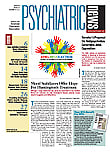Onfi Approved for Certain Seizures
On October 24, Lundbeck announced that the Food and Drug Administration (FDA) has approved the oral antiepileptic drug Onfi (clobazam) as adjunctive therapy for seizures associated with Lennox-Gastaut syndrome (LGS) in patients aged 2 and older. Onfi will be available in U.S. pharmacies in early January and is a federally controlled Schedule IV substance.
The FDA approval was based on two multicenter controlled studies similar in terms of disease characteristics and prior treatment of patients, including a phase 3 study in 238 patients with a current or prior diagnosis of LGS. The study’s primary endpoint was the percent reduction in the weekly frequency of drop seizures (atonic, tonic, or myoclonic), from the four-week baseline period to the 12-week maintenance period. A phase 2 dose-ranging study was also conducted (n=68) that was consistent with results of the phase 3 trial.
New Bupropion Formulation Approved
IntelGenX announced November 11 that the FDA has approved CPI-300, a high-strength formulation of bupropion, for patients with major depressive disorder. CPI-300 is the only single-dose 450 mg formulation of bupropion; the previous highest dosage form was 300 mg, manufactured by several companies and found in the branded product Wellbutrin. When bupropion is used as an antidepressant, 450 mg is the maximum recommended daily dosage. The new formulation is expected to be available in pharmacies in the second quarter of 2012.
European Approval for Adasuve Sought
On October 27, Alexza Pharmaceuticals announced that it has submitted its Marketing Authorization Application to the European Medicines Agency for Adasuve (loxapine), an antipsychotic approved in the United States in oral and injectable forms. Adasuve uses Alexza’s Staccato system to vaporize the drug for deep-lung inhalation and rapid treatment of agitation in patients with schizophrenia or bipolar disorder.
Appetite Suppressant Closer to Approval
An experimental weight-loss drug may be one step closer to FDA approval. Researchers at the University of Alabama’s Nutrition Obesity Research Center published online November 3 in Obesity the results of a 56-week randomized, controlled trial to evaluate the safety and efficacy of Qnexa, a controlled-release combination of phentermine and topiramate. In addition to average weight loss of 14.4 percent of initial body weight among those who completed the study at the top dose of the combination, severely obese patients had improvements in blood pressure, glucose, triglycerides, and cholesterol. The researchers said their results with Qnexa suggest the potential to treat severely obese patients effectively without surgery.
Vivus, the developer of Qnexa, also announced last week that the FDA has accepted the New Drug Application for Qnexa as an obesity treatment. A decision on the application is expected in April 2012.
Concern Raised Over Serotonin Syndrome
On October 20, the FDA issued Drug Safety Communication notices to update health care professionals and the public on the potential for serotonin syndrome in patients receiving methylene blue or Zyvox (linezolid). Concerns were first characterized by the FDA in July.
The agency said that most cases from their Adverse Event Reporting System of serotonin syndrome in patients given serotonergic psychiatric medications and methylene blue occurred in the context of parathyroid surgery that involved the intravenous administration of methylene blue as a visualizing agent. Methylene blue doses ranged from 1 mg/kg to 8 mg/kg. “Because methylene blue is not an FDA-approved drug at this time, and limited data exist regarding its use in various settings, it is not known whether there is a risk of serotonin syndrome in patients taking serotonergic psychiatric medications who are given methylene blue by other routes (e.g., orally or by local tissue injection) or at intravenous doses lower than 1 mg/kg,” the FDA advised.
The FDA said that not all serotonergic psychiatric drugs have an equal capacity to cause serotonin syndrome with either methylene blue or linezolid, and that cases occurred in patients taking specific serotonergic psychiatric drugs.
Chantix’s Hospitalization Risk Assessed
On October 24, the FDA announced that it had reviewed the results from two FDA-sponsored epidemiological studies that evaluated the risk of neuropsychiatric adverse events associated with the smoking-cessation drug Chantix (varenicline). Neither study found a difference in risk of neuropsychiatric hospitalizations between Chantix and nicotine-replacement therapy. However, according to the FDA, both studies had a number of design limitations, including only assessing neuropsychiatric events that resulted in hospitalization and not having a large enough sample size to detect rare adverse events. Although these two studies did not suggest an increased risk of neuropsychiatric events that result in hospitalization, they do not rule out an increased risk of other neuropsychiatric events with Chantix.
The FDA advised that health care professionals and patients should continue to follow the recommendations in the physician label and the patient Medication Guide and monitor for neuro-psychiatric symptoms when prescribing or using Chantix. Based on the FDA’s assessment of available data, the agency continues to believe that the drug’s benefits outweigh the risks and that the current warnings in the Chantix drug label are appropriate.
The FDA is continuing to evaluate the risk of neuropsychiatric events with Chantix. The drug manufacturer is conducting a large safety clinical trial to assess neuropsychiatric adverse events, and results from this study are expected in 2017.

